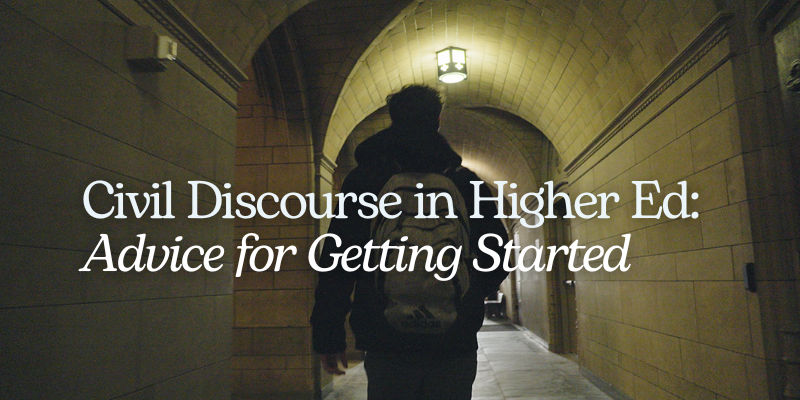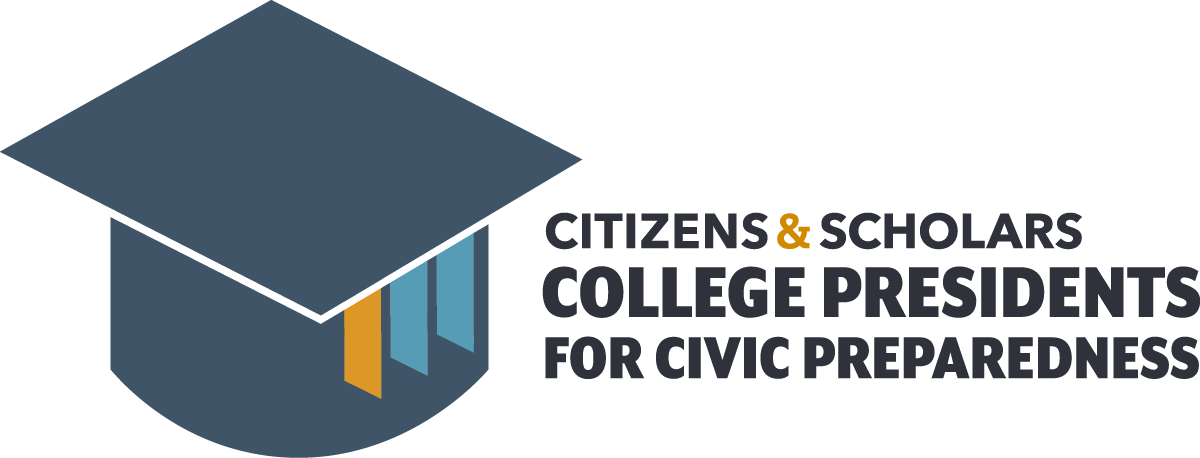Civil Discourse in Higher Ed: Advice for Getting Started

Looking to introduce civil discourse across your campus but unsure where to begin? University of Pittsburgh leaders—Dean Carissa Slotterback and Chancellor Joan Gabel—offer practical, experience-based advice for launching effective, campuswide civil discourse initiatives.
Watch Real Talk: Across Campus, Across Divides to hear more.
Carissa Slotterbock, Dean of the School of Public and International Affairs
How have you collaborated across the university to support this work?
We built a strong steering committee from the start that included faculty, staff, and students—people already doing this work in different ways. They helped us identify what was already happening on campus and think through what else we could do. We have exceptional interest across so many units at Pitt, with many students and colleagues coming to the table with ideas about how to advance discourse and dialogue in their work and for their audiences. We’ve also benefited from connections with the Institute for Citizens & Scholars and other universities.
How are you measuring the effectiveness of these efforts?
We’re looking at both participation and impact. Who’s engaging—students, faculty, staff—and what changes might we see in their willingness to engage across difference? We’re using surveys and planning qualitative analysis. This spring, we launched a campus-wide student survey to get a baseline and will repeat it next year to track changes.
What challenges have you faced?
Pitt is a big place, so sustaining engagement will be a challenge. But we’ve focused on tapping into people who are passionate about this work, and that’s helped build momentum. Some of what we’ve started—especially in our Office of Student Affairs, Center for Teaching and Learning, and through future curriculum changes—has real potential to continue well into the future.
What advice would you give to other institutions trying to launch civil discourse programs?
Jump in. This work is so important. It’s essential to higher ed’s commitment to freedom of expression, open inquiry, and meaningful engagement across difference. These aren’t just academic skills—they’re human ones. We need them more than ever.
The Chancellor weighs in:
What advice would you give to other institutions trying to launch civil discourse programs?
Chancellor Joan Gabel:
Start by assuming good intent. We’re in a moment where many are afraid they’ll be misinterpreted. And while that can happen, I’d encourage leaders not to let that fear stop them from engaging. We have to be willing to have uncomfortable conversations and model that ourselves—not just teach it.
Listen to your students. Learn what they’re thinking about and how they’re talking about it. Use that as the foundation for building programming, curriculum, and policies. Listening first, then acting—that’s the key. And higher ed is uniquely positioned to lead in this space. It’s part of our mission.
